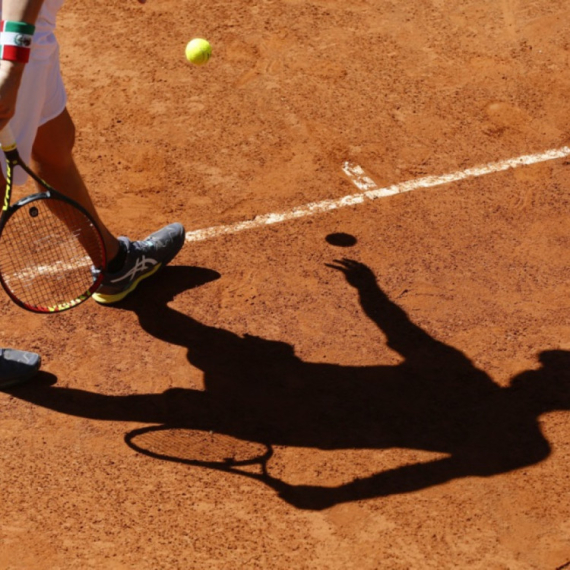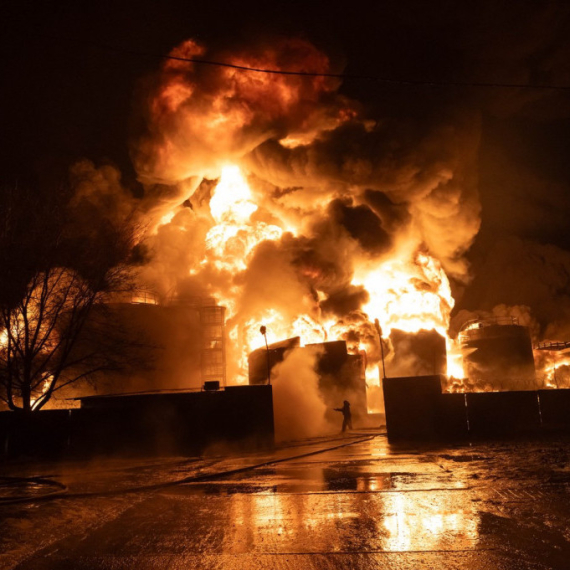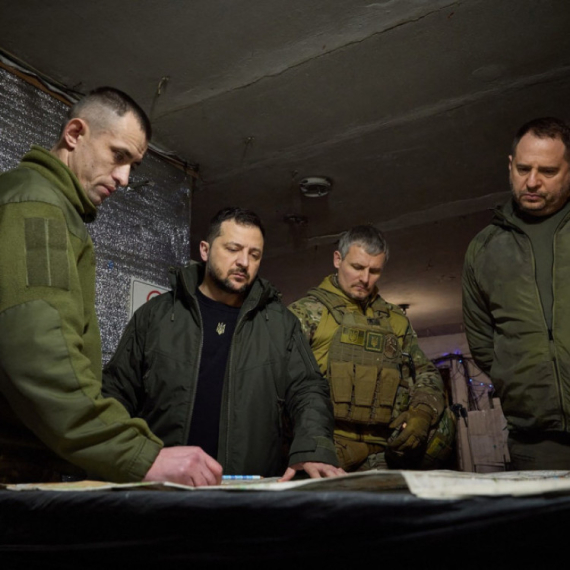Litvinenko poison "from Russia"
The radioactive substance that poisoned Alexander Litvinenko highly likely came from a Russian state-controlled plant.
Saturday, 24.11.2007.
10:51

The radioactive substance that poisoned Alexander Litvinenko highly likely came from a Russian state-controlled plant. The claim came from a lawyer representing the victim's family, the BBC said. Russia has previously denied the poison had been stolen from the country. Litvinenko poison "from Russia" The former KGB agent's widow Marina wants to put pressure on Russia and find out who killed her husband. Speaking on the anniversary of his death, Louise Christian, acting for Marina, said the case has been taken to the European Court of Human Rights. Christian said legal papers were filed on Thursday accusing the Russian government of complicity in the murder and of failing to carry out a proper investigation into the death. Scotland Yard has identified Andrei Lugovoi as the main suspect in the case but he has denied any involvement. The British government wants him to stand trial but attempts to extradite him have been unsuccessful. Under the European Convention on Extradition 1957, Russia has the right to refuse the extradition of a citizen, and its constitution expressly forbids it from doing so. Litvinenko died in London's University College Hospital after being poisoned by polonium-210. At a news conference Mrs. Litvinenko said she still hoped British authorities would succeed in extraditing Lugovoi to face justice in London. "I lost my husband and I want to know who was behind the killing. "I promise we will find who is responsible for this. Without this knowledge, we just cannot feel we are safe," she said. Louise Christian, who has represented the cases of Britons being held at Guantanamo Bay and relatives of the Potters Bar rail crash victims, said evidence from an expert's report showed the Russian Federation was "guilty of complicity or connivance" in Litvinenko's death. A UK-based physics professor concluded it was highly likely the polonium-210 came from a Russian state-controlled plant, she said. She cited the professor as saying he was "almost certain" the Russian government was involved in supplying the polonium used to murder Alexander Litvinenko. She added that if the Russian government were serious about the matter, they would co-operate with the British investigation. Alex Goldfarb, a friend of Litvinenko, said friends and family would keep up the pressure for those responsible to be brought to justice. "It looks unlikely that diplomacy and legal processes will result in bringing the perpetrators of this murder to justice here in London," he told reporters. Instead, he said, supporters would begin to speak about the "culpability of the Russian government" and would step up their campaign on the international scene. Last year Russia's nuclear chief rejected suggestions that the polonium-210 linked to Litvinenko's death could have been stolen from the country. Earlier on Friday Mrs. Litvinenko was joined by supporters outside the hospital, where her husband died. There was a reading of Litvinenko's death-bed statement accusing Russian President Vladimir Putin of being involved in his murder. Litvinenko, who was an outspoken critic of Mr Putin's leadership in Russia, died after drinking tea containing the poison. UK-Russian relations Businessman Lugovoi, who is running for a seat in the Russian parliament, claims the British case for his extradition has collapsed. He rejects all charges and has just won a libel case against a prominent Russian newspaper. In the wake of the Litvinenko affair there has been a deterioration in UK-Russian relations. There have been tit-for-tat expulsions of first Russian then British diplomats, and a suspension of co-operation between security services, with no sign of either government inclined to back down. BBC News security correspondent Frank Gardner says mutual suspicions are back close to where they were in the dark days of the Cold War.
Litvinenko poison "from Russia"
The former KGB agent's widow Marina wants to put pressure on Russia and find out who killed her husband.Speaking on the anniversary of his death, Louise Christian, acting for Marina, said the case has been taken to the European Court of Human Rights.
Christian said legal papers were filed on Thursday accusing the Russian government of complicity in the murder and of failing to carry out a proper investigation into the death.
Scotland Yard has identified Andrei Lugovoi as the main suspect in the case but he has denied any involvement.
The British government wants him to stand trial but attempts to extradite him have been unsuccessful.
Under the European Convention on Extradition 1957, Russia has the right to refuse the extradition of a citizen, and its constitution expressly forbids it from doing so.
Litvinenko died in London's University College Hospital after being poisoned by polonium-210.
At a news conference Mrs. Litvinenko said she still hoped British authorities would succeed in extraditing Lugovoi to face justice in London.
"I lost my husband and I want to know who was behind the killing.
"I promise we will find who is responsible for this. Without this knowledge, we just cannot feel we are safe," she said.
Louise Christian, who has represented the cases of Britons being held at Guantanamo Bay and relatives of the Potters Bar rail crash victims, said evidence from an expert's report showed the Russian Federation was "guilty of complicity or connivance" in Litvinenko's death.
A UK-based physics professor concluded it was highly likely the polonium-210 came from a Russian state-controlled plant, she said.
She cited the professor as saying he was "almost certain" the Russian government was involved in supplying the polonium used to murder Alexander Litvinenko.
She added that if the Russian government were serious about the matter, they would co-operate with the British investigation.
Alex Goldfarb, a friend of Litvinenko, said friends and family would keep up the pressure for those responsible to be brought to justice.
"It looks unlikely that diplomacy and legal processes will result in bringing the perpetrators of this murder to justice here in London," he told reporters.
Instead, he said, supporters would begin to speak about the "culpability of the Russian government" and would step up their campaign on the international scene.
Last year Russia's nuclear chief rejected suggestions that the polonium-210 linked to Litvinenko's death could have been stolen from the country.
Earlier on Friday Mrs. Litvinenko was joined by supporters outside the hospital, where her husband died.
There was a reading of Litvinenko's death-bed statement accusing Russian President Vladimir Putin of being involved in his murder.
Litvinenko, who was an outspoken critic of Mr Putin's leadership in Russia, died after drinking tea containing the poison.
UK-Russian relations
Businessman Lugovoi, who is running for a seat in the Russian parliament, claims the British case for his extradition has collapsed.
He rejects all charges and has just won a libel case against a prominent Russian newspaper.
In the wake of the Litvinenko affair there has been a deterioration in UK-Russian relations.
There have been tit-for-tat expulsions of first Russian then British diplomats, and a suspension of co-operation between security services, with no sign of either government inclined to back down.
BBC News security correspondent Frank Gardner says mutual suspicions are back close to where they were in the dark days of the Cold War.



























































Komentari 1
Pogledaj komentare